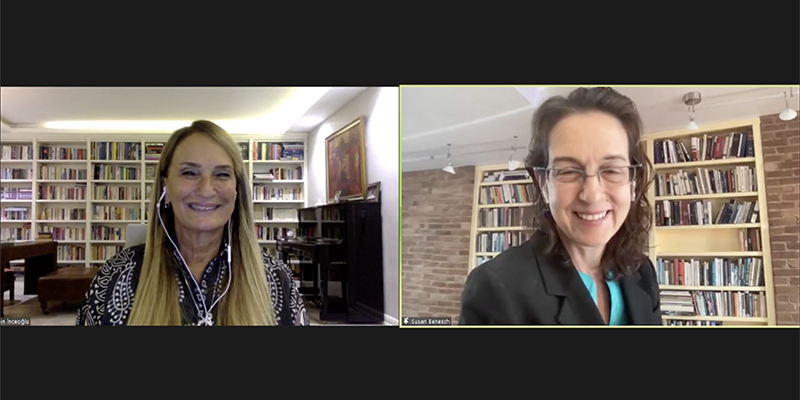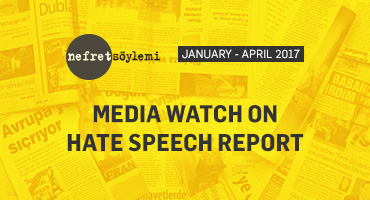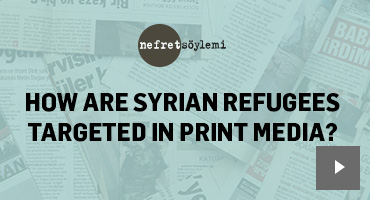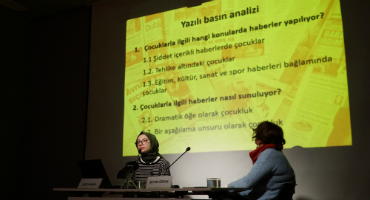The online talk "Social Media and Hate Speech: How is Discrimination Spread Through Algorithms?" was held, moderated by Professor Yasemin İnceoğlu and included Susan Benesch (Dangerous Speech Project) as a speaker on December 15, 2021.
Yasemin İnceoğlu began the online discussion by sketching the outline of the online talk. İnceoğlu briefly discussed the present scenario of hate speech and discrimination spreading on social media platforms, the need of safeguarding free expression while combating hate speech, and the potential of bias in social media platform algorithms.
Susan Benesch, director of the Dangerous Speech Project, started her speech by talking about the lack of a clear and widely accepted definition of hate speech. Benesch stated that with the rapid spread of hate speech on social media platforms, social media companies have just started to struggle with this problem. Stating that in order to better understand hate speech, it is necessary to look at who produces these speeches, Benesch mentioned that there are professional groups that produce and spread hate speech content for ideological reasons and/or economic benefits. Benesch emphasized that content containing hate speech also contains false information, and stated that groups that spread hate speech content also spread false information.
Susan Benesch, the Dangerous Statement Project's director, began her speech by lamenting the lack of a clear and widely accepted definition of hate speech. Benesch added that, due to the rapid proliferation of hate speech on social media platforms, social media corporations have just recently begun to cope with this issue. Benesch stated that it is vital to look at who generates hate speech in order to better comprehend it, and that there are professional groups who develop and promote hate speech content for ideological and/or economic motives. Benesch underlined that hate speech content contains misleading information, and that groups that disseminate hate speech content likewise disseminate false information.
Noting that it is difficult for algorithms built to be unbiased when detecting hate speech with artificial intelligence, the speaker highlighted once more that the most essential factor to be addressed while combating hate speech is the preservation of free expression. Benesch closed his remarks by emphasizing the need of civil society taking an active part in addressing this issue.
Continuing to discuss the policies developed by social media platforms like Facebook, Twitter, and Instagram to combat hate speech and fake news, Benesch stated that practices like deleting content containing hate speech and fake news from social media platforms or removing posts before they are published should be implemented without jeopardizing free expression.Çevrimiçi konuşmanın videosu




